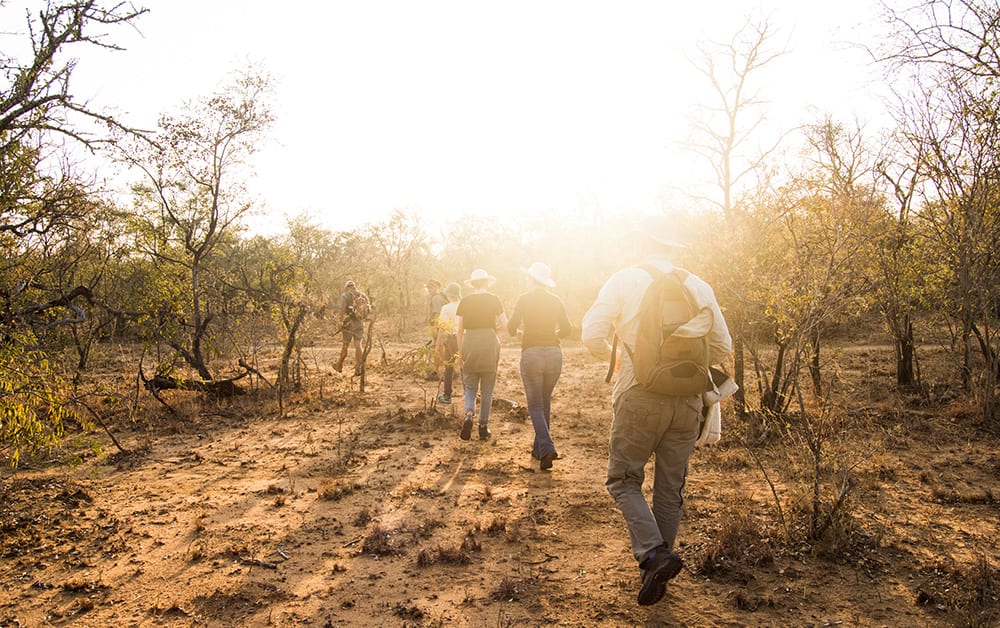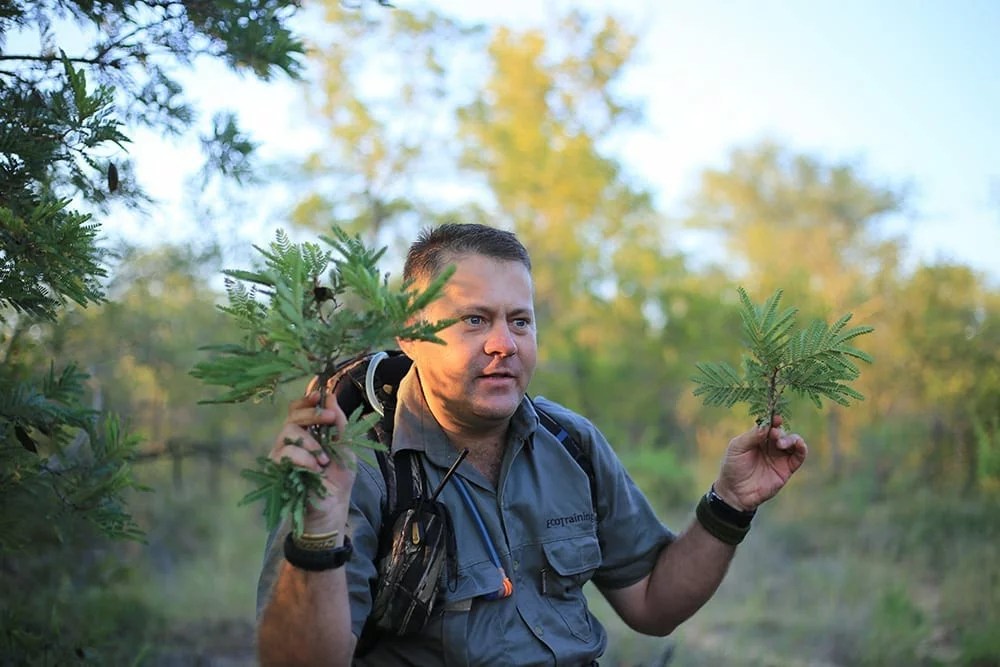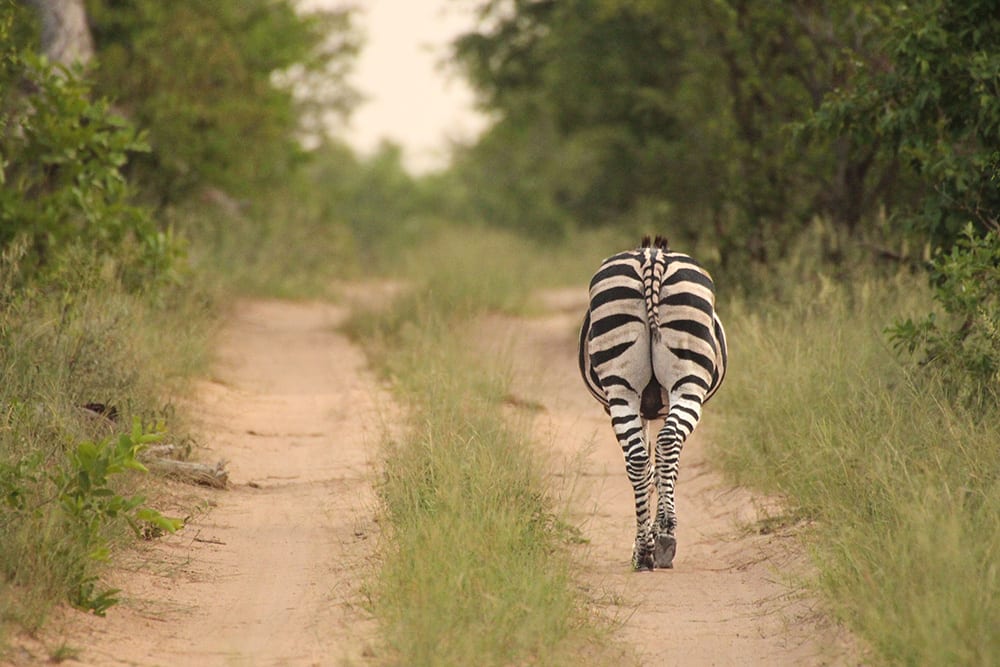 “A walking safari brings us back to our origins. It’s important to remember that humans were in the African wilderness long before the safari industry began.” – Devon Myers (Professional Trails Guide)
“A walking safari brings us back to our origins. It’s important to remember that humans were in the African wilderness long before the safari industry began.” – Devon Myers (Professional Trails Guide)
As anyone who takes an EcoTraining course discovers, walking in the wild is the oldest form of safari. The aim is to enjoy nature in a natural, non-threatening way. It’s not a thrill-seeking activity, although spotting an elephant or lion whilst on foot certainly raises your pulse.
Even though we sometimes find ourselves up close and personal with potentially dangerous animals, walking in the bush is not about getting up close to these magnificent animals for the best possible photograph.
A walking safari brings us back to our origins. Humans were part of the African wilderness long before the safari industry began. Humans naturally have a good sense of smell, hearing, touch, sight and taste. However, in the modern world, we have forgotten how to use some of these senses to the best of our ability.
Walking safaris are a feast for the senses — listening to grass and leaves crunch under your feet, the sound of an elephant’s ears flapping against its neck, or the smell of buffalo on the wind are all wonderful ways to reawaken these senses.
Being on foot also allows us to take note of the smaller, less noticed yet very important and interesting parts of our natural world.

Not only does a walking safari provide us with a more environmentally friendly way of enjoying the bush, also enables us to access regions and areas that are inaccessible to vehicles. These areas are untouched by the modern safari machine, pristine in their existence.
For that very reason, many of the same areas that are inaccessible to safari vehicles are also plagued by poaching issues.
Having small groups of people trekking through these areas not only enables us to see signs of poaching — for example, tracks, snares, poaching camps, etc. — but also acts as a vital deterrent to poachers wanting to frequent these areas, knowing there are boots on the ground, with eyes and ears in the bush.
In that respect, walking safaris are not only a phenomenal, low impact, environmentally friendly way for people to enjoy nature and reconnect with the wilderness, but also go a long way in the fight against poaching.


0 Comments